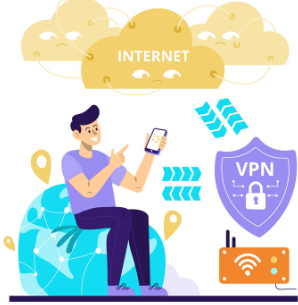In the world of technology and networking, every device connected to the internet is identified by an IP address. One such example is 185.63.2253.200, which looks like a standard IPv4 address and raises curiosity about its meaning, usage, and importance in online communication. IP addresses like this serve as digital identifiers that allow devices, servers, and websites to communicate with each other. Beyond simple identification, they play a critical role in online security, data transfer, and user accessibility. In this article, we will explore what 185.63.2253.200 means, how IP addresses work, their role in cybersecurity, and why understanding them is essential in today’s connected world.
What is 185.63.2253.200?
The sequence 185.63.2253.200 is structured like an IP address, specifically in the IPv4 format that uses four sets of numbers separated by dots. IP addresses like this are crucial for directing internet traffic, similar to how a physical address guides postal mail to the correct destination. While this particular IP string may or may not correspond to an active device or server, it represents how every online entity requires a unique digital identity. These identifiers are issued by Internet Service Providers (ISPs) or hosting companies and can be static (permanent) or dynamic (changing over time). Understanding an IP address such as 185.63.2253.200 is part of learning how the internet routes requests and responses between billions of devices worldwide.
The Importance of IP Addresses in Online Communication
When discussing 185.63.2253.200, it is important to recognize the broader significance of IP addresses in online communication. Every time a person visits a website, streams content, or sends an email, IP addresses are working behind the scenes to make these connections possible. They serve as routing tools, ensuring that data packets reach the correct destination without being lost. Without IP addresses, the internet would have no way to differentiate between one device and another. In short, IP addresses are the invisible backbone of the digital world, quietly enabling billions of daily online interactions.
Security Concerns with IP Addresses like 185.63.2253.200
While IP addresses such as 185.63.2253.200 are essential for connectivity, they also raise important security questions. Since IPs can reveal approximate locations, they can sometimes be exploited by hackers, cybercriminals, or malicious bots for activities like DDoS attacks or unauthorized tracking. This is why protecting an IP address has become a priority in cybersecurity. Users often employ firewalls, VPNs (Virtual Private Networks), and encrypted connections to mask or secure their IP addresses from unwanted exposure. For organizations, ensuring that their servers and IPs are safeguarded is critical to prevent unauthorized access and data breaches.
How to Check and Use IP Addresses Like 185.63.2253.200
For individuals or businesses, tools are available to check IP addresses such as 185.63.2253.200. These tools can provide information about the location, ISP, and potential reputation of an IP. Businesses may use this data to monitor traffic, block suspicious addresses, or optimize network performance. On the other hand, everyday users might check IPs to identify whether a website is safe to visit or whether an unusual login attempt originated from an unfamiliar region. By understanding and using IP data wisely, users gain more control over their digital interactions.
Why 185.63.2253.200 Highlights the Need for Cyber Awareness
The existence of IP addresses like 185.63.2253.200 highlights the importance of cyber awareness in modern society. Many people browse the internet without realizing how much information their devices transmit in the background. Awareness of IP visibility and security risks allows individuals to take proactive measures, such as using secure networks, avoiding suspicious links, and employing cybersecurity tools. For businesses, this awareness extends to building strong defenses that protect customer data and company infrastructure. In essence, IP addresses remind us that digital safety starts with understanding the basics of online identity.
Conclusion: The Role of 185.63.2253.200 in the Digital World
In conclusion, 185.63.2253.200 may look like just a random sequence of numbers, but it represents a critical part of how the internet functions. IP addresses are the unsung heroes of connectivity, silently directing online traffic and enabling seamless communication between devices. At the same time, they carry risks that require protection and awareness. Whether you are an individual browsing the web or a business managing servers, understanding IP addresses like 185.63.2253.200 helps you appreciate the importance of cybersecurity and responsible online practices. As the digital world expands, learning about IPs and their role in connectivity will only grow more essential.
Frequently Asked Questions (FAQ) about 185.63.2253.200
Q1: What is 185.63.2253.200?
It appears to be an IPv4 address format, representing how devices are identified and connected on the internet.
Q2: Can someone track me with my IP address?
Yes, IP addresses can reveal approximate locations. This is why VPNs and security tools are often used to protect privacy.
Q3: Is 185.63.2253.200 a safe IP address?
By itself, an IP is neither safe nor unsafe—it depends on who controls it and how it is used. Tools exist to check the reputation of specific IPs.
Q4: How do businesses use IP addresses like 185.63.2253.200?
They use them for routing, monitoring traffic, blocking malicious activity, and improving network security.
Q5: What is the difference between a static and dynamic IP?
A static IP stays the same, often used by servers, while a dynamic IP changes periodically, usually assigned to home users by ISPs.
Q6: How can I protect my IP address from exposure?
Using VPNs, firewalls, and secure browsing practices helps keep your IP address private and protected.
